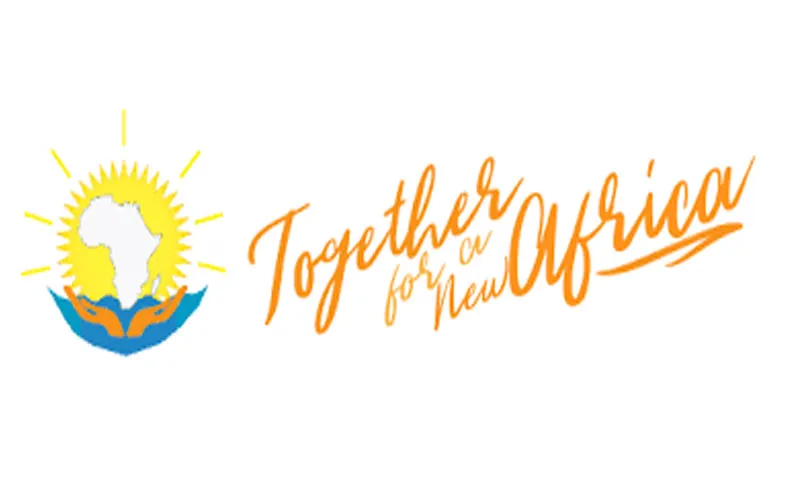The leadership of the entity also expresses optimism that by August 2025, over 5,000 youth in 12 African countries will be able to face their challenges in their individual lives and of their communities and promote a Culture of Unity.
Among its set of proposed activities, the leadership of T4NA aims to establish and support National “Summer Schools”, which will take place in 12 beneficiary countries and at Sophia University Institute with 240 young leaders in January 2023.
Two Pan-African “Summer Schools” will also run for 10 days with 120 trainees from 12 African countries in Kenya. These schools will provide interactive, intercultural, interdisciplinary, multi-perspective, practice-oriented training approaches, scheduled for January 2024 and January 2025.
T4NA has also planned for 72 local interventions by trainees in their countries and communities involving 15,000 young people. The trainees are expected to be engaged in joint problem assessment and analysis and subsequent social, ecological, awareness-creating activities between January 2023 and December 2024.
There will also be networking among trainees, tutors and professors on a regular basis, aided by social media platforms and the project’s own website.
(Story continues below)
T4NA offers a fascinating opportunity to individuals and organizations to take part in an energetic grassroots initiative masterminded by farsighted African youth for a better future of their homelands, that has involved thousands of youth across their continent since 2018, the concept note indicates.
The network is hinged on challenges of young people who the leadership of the network notes are the majority in Africa.
Young people, T4AN notes, “are also the most affected by the continent’s huge challenges… rapid population growth, ineffective education, unemployment, poverty, lack of perspective, climate instability, ethnic tensions, wars and displacement.”
“The root causes of most challenges are improper leadership, mismanagement and systemic corruption,” Ulz says in the project’s concept paper shared with ACI Africa.
The native of Austria who is based in Nairobi adds, “The old paradigm of the ‘strong leader’, still dominant in Africa, is increasingly unable to resolve the complex issues globalized societies have to face. Global problems call for a communitarian approach of networking, collaboration, co-governance and co-leadership.”
According to the Development Coordinator of the Focolare Movement Eastern Africa, today’s refugee crisis shows how “desperately” Africans yearn for a better life elsewhere, a situation he says is draining their countries of the youthful energy and talent needed at home to bring sustainable change.
Since 2014, a group of African students and graduates of Sophia University Institute in Italy has felt challenged to go “back to Africa”, to take responsibility for their societies of origin and shape a new Africa together.
The youth, Ulz says, strive to bring about a cultural transformation leading to a new style of leadership described as “co-leadership”, promoting co-governance and a Culture of Unity.
In January 2020, participants in a T4NA training expressed their individual and collective dedication “to the task of bringing about transformative leadership in our communities, our countries and our continent and by doing so, transform not only Africa but the whole world.”
In an interview with ACI Africa after the January 2020 training, Ulz said that T4NA is a laudable “dream of the Africa students of Sophia University.”
In his analysis, the beneficiaries of the training “have understood that they should not just build up their own career having the opportunity to study in New York, but they have understood that they bring what they have learnt to Africa to build up Africa.”
He said that the beneficiaries of the training had also understood that they could bring a cultural change into Africa “not in the sense of not appreciating African culture but going back to the roots of African culture, which they feel is expressed in the Ubuntu philosophy which is very strongly oriented to co-governance, to collaboration, to consensus.”
When COVID-19 struck, T4NA members in their respective countries were at the forefront of spreading messages of hope and unity, sensitizing members of the community on the guidelines given by the World Health Organization (WHO), purchasing and providing sanitizers and facemasks, as well as stepping out to feed, clothe and give shelter to the needy during that time.
The T4NA project, which primarily relies on volunteers, gets its financial support from various stakeholders including Missio Austria, UNESCO Headquarters in Paris, KNATCOM, Austria’s Caritas Steiermark, participants’ contributions, and private donations, Ulz who has coordinated the fundraising initiatives told ACI Africa.
Agnes Aineah is a Kenyan journalist with a background in digital and newspaper reporting. She holds a Master of Arts in Digital Journalism from the Aga Khan University, Graduate School of Media and Communications and a Bachelor's Degree in Linguistics, Media and Communications from Kenya's Moi University. Agnes currently serves as a journalist for ACI Africa.








